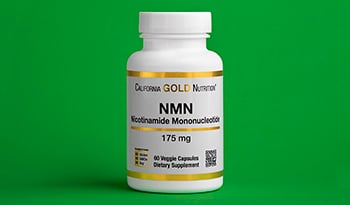L-Methionin: Fødevarekilder, Tilskud, Bivirkninger

Hvad er aminosyrer?
Når de er bundet sammen i kæder, danner aminosyrer proteiner i kroppen. Så aminosyrer er som bogstaver i et alfabet, der bruges til at danne ord. Det specifikke antal og sekvens af aminosyrer bestemmer proteinets form og funktion.
Proteiner bruges i alle mulige roller i kroppen, herunder dem, der er involveret i vævestruktur og cellulær regulering.
Der er tyve forskellige aminosyrer, der bruges af den menneskelige krop til at fungere korrekt. Ni af disse aminosyrer kaldes essentielle aminosyrer og skal indskrænkes i omkostningerne.
Hvad er L-methionin?
L-methionin er en af de essentielle aminosyrer, der indeholder svovl.
L-methionin fødekilder
De bedste kostkilder til methionin:
- Kød
- Fjernød
- Fisk
- Æg
- Mejeriprodukter
De bedste plantebaserede kilder:
- Sojamade
- Paranoider
- Solsikkefrø
- Sorte bønner
- Cashewnødder
L-methionin-funktioner
Ud over at blive brugt i protein blev L-methionin også omdannet til et meget vigtigt molekyle i kroppen kendt som S-adenosylmethionineller SAMe. SAMe dannes fra kombinationen af L-methionin og adenosintriphosphat (ATP), kroppens vigtigste „energimolekyl“. SAMe spiller en integreret rolle i skabelsen af forskellige hormoner, neurotransmittere og andre kritiske molekyler, der findes i kroppen. SAMe er opstået som en vigtig kosttilskudsform for L-methionin.[1]
L-methionin omdannes også til en anden svak aminosyre, L-cystein, som også kan omdannes til L-taurin, samt blive en nøglekomponent i glutathion, en vigtig cellulær antioxidant og giftig forbindelse.[1] }
L-methionintilskud
L-methionintilskud er meget anderledes end at supplere med SAMe, som kan ses som en mere aktiv form for L-methionin. L-methionin er tilgængelig som en enkelt ingrediens, men er oftest inkluderet i leversundhedsformer designet til at fremme strømmen af galde og fedt til og fra leveren (lipotrope former). Andre forbindelser, der typisk findes i disse former, er cystein, cholin, inositol og betain. Effektiviteten af methionin som et lipotropt middel er ikke blevet bekræftet.
Mangel
Aminosyrer er vigtige for et godt helbred, og kroppen har et meget komplekst system til at regulere deres niveauer, balance og stofskifte. Vitaminer B6, folat og B12 er også involveret i dette system. Mangel på disse næringsstoffer fremmer L-methionin metabolismen, hvilket fører til højere niveauer af en skadelig metabolisme kendt som homocystein. Forhøjede homocysteinniveauer kan føre til en øget risiko for over 100 forskellige sundhedsproblemer, herunder hjertesygdomme, osteoporose, kognitiv tilbagegang og Alzheimers sygdom.[2]
Bivirkninger og bivirkninger
Tilskud af op til 2 gram L-methionin dagligt i lange perioder har ikke givet nogen alvorlige bivirkninger hos mennesker. Mens dyremodeller har vist, at en diæt med højt methioninindhold er forbundet med øget hjernebetændelse, kognitiv svækkelse og læsioner, der er karakteristiske for Alzheimers sygdom, skyldes sandsynligvis disse virkninger opbygningen af homocystein, et kendt neurotoxin på grund af utilstrækkeligt indtag af vitamin B6, B12 og folat.[3]
Hos mennesker blev det vist, at forholdet mellem L-methionin og homocystein er det kritiske markør. Et højt forhold mellem højt L-methionin og lavt homocystein var forbundet med nedsat risiko for demens og reduceret tab af hjernevolumen. Forholdet mellem methionin og homocystein var signifikant højere hos personer, der indtog vitamintilskud.
Denne forskning indikerer, at L-methiontilskud altid bør omfatte tilstrækkeligt kosttilskud eller tilskud af vitamin B6, B12og folat for at sikre korrekt L-methioninmetabolisme. I modsætning til L-methionin er der ingen bekymring for SAMe, da denne form ikke hæver homocysteinniveauerne.[5]
Referencer:
- Elango R. Methionin ernæring og stofskifte: Indsigt fra dyreforsøg til at informere menneskelig ernæring. Jul. 2020 okt. 1; 150 (Suppl 1) :2518S-2523S.
- Smith AD, Refsum H. Homocystein - from disease biomarkør til sygdomsforebyggelse. J Intern Med. 2021 okt.; 290 (4) :826-854.
- Alachkar A, Agrawal S, Baboldashtian M, Nuseir K, Salazar J, Agrawal A. L-methionin forbedrer neuroinflammation og fremkalder neurogenese: Implikation for Alzheimers sygdom. J Neuroimmunol. 2022 15. maj; 366:577843.
- Hooshmand B, Refsum H, Smith AD, et al. Forbindelse af methionin til homocysteinstatus med hjernemagnetisk resonansbilleddannelsesforanstaltninger og risiko for demens. JAMA Psykiatri. 2019 1. november; 76 (11): 1198-1205.
- Thompson MA, Bauer BA, Loehrer LL, et al. Kosttilskud S-adenosyl-L-methionin (AdoMet) virkninger på plasma-homocysteinniveauer hos raske mennesker: et dobbeltblindt, placebokontrolleret, randomiseret klinisk forsøg. J Altern Complement Med. 2009 maj; 15 (5): 523-9.
ANSVARSFRASKRIVELSE: Wellness Hub har ikke til hensigt at stille diagnoser...

















































































 Indholdsfortegnelse
Indholdsfortegnelse














